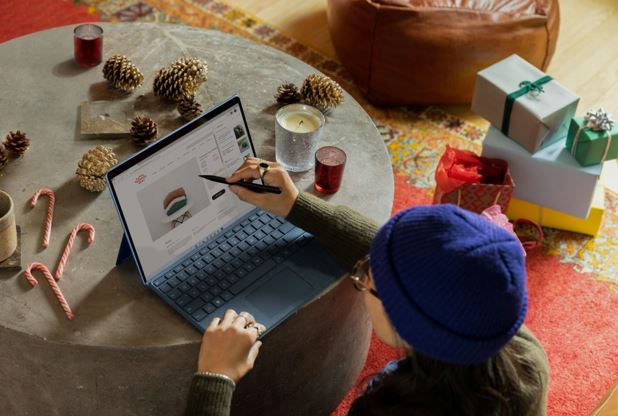Best VPN vs. free VPN: what makes it worth paying for?
In today’s digital age, the need for online privacy and security is more important than ever. Many people are faced with the choice between free VPN services and paid ones. While free options may seem appealing due to their cost, they often come with significant drawbacks. This article explores the key differences between the best VPNs and their free counterparts, helping you make an informed decision about which option suits your needs best.
Understanding the Differences Between Free and Paid VPNs
Security Features of Free VPNs
Free VPNs sound great because there’s no cost upfront. But here’s the thing: they often come with strings attached. Some might sell your data or bombard you with ads. Security isn’t always top-notch. You might find basic encryption, but that’s about it. Some free VPNs even use your device as a server for other users, which can be risky.
Security Features of Paid VPNs
Paid VPNs usually offer better security features. We’re talking strong encryption, like AES 256-bit, and secure protocols like OpenVPN. They also have features like a kill switch to protect your data if the connection drops. Plus, they don’t need to sell your data to make money, so privacy is taken more seriously.
Performance and Speed Comparison
When it comes to speed, paid VPNs generally win. Free VPNs can be slow because they have fewer servers, and those servers are often crowded. Paid VPNs, on the other hand, have more servers in various locations, which means faster and more reliable connections. So if speed’s your thing, paying might be worth it.
Choosing between free and paid VPNs is like picking between a free meal and a paid one. The free meal might fill you up, but the quality and taste just aren’t the same. With a paid VPN, you’re investing in better security, speed, and overall experience.
Why Free VPNs Are Popular
Cost Benefits of Free VPNs
Free VPNs are a hit mostly because they cost nothing. Who doesn’t love free stuff, right? It’s like finding a free snack at a party. You grab it without thinking twice. With free VPNs, you get basic privacy without spending a dime. Sure, they might not be super fancy, but for someone just wanting to hide their IP for a bit, they do the trick.
Limitations of Free VPNs
But here’s the catch. Free VPNs come with strings attached. Limited bandwidth, fewer server options, and slower speeds are just a start. It’s like getting a free coffee but only being allowed to drink half of it. Plus, don’t expect them to unblock your favorite streaming sites.
Risks Associated with Free VPNs
Using a free VPN can be risky business. They might sell your data to third parties to make up for the free service. Imagine giving away your personal info just to save a few bucks. Not to mention, some might even come with malware. So, while they seem like a sweet deal, there’s a chance you could end up paying in other ways.
Free VPNs are like a double-edged sword. On one side, they offer no-cost privacy, but on the other, they might compromise your security. Choose wisely.
Advantages of Using the Best VPN
Enhanced Security and Privacy
When you pay for a VPN, you get serious security. We’re talking about top-notch encryption that keeps your data locked up tight. Paid VPNs usually come with extra features like split tunneling and kill switches. These make sure your info stays safe even if the connection drops. You won’t find these goodies with free VPNs.
Access to Global Content
Want to watch shows or access websites that aren’t available in your country? The best VPNs can do that. They have tons of servers all over the world, so you can pretend you’re browsing from anywhere. Whether it’s Netflix from another country or a website only available abroad, a paid VPN can get you there.
Reliable Customer Support
Ever had a tech issue and couldn’t get help? With a paid VPN, you usually get 24/7 customer support. This means if something goes wrong, there’s someone to help you out. Free VPNs? Not so much. They often leave you hanging when you need help the most.
Paying for a VPN is like having a security guard for your online world. It’s about peace of mind, knowing your data is safe and you can browse freely.
Evaluating the Cost of Paid VPNs
Subscription Models and Pricing
Top-rated VPNs come with different pricing plans. Some let you pay monthly, while others offer discounts if you pay for a year or two upfront. The longer the subscription, the cheaper it usually is per month. It’s like buying in bulk; you save more in the long run. Here’s a quick look at some typical pricing:
Value for Money
When you pay for a VPN, you’re not just paying for privacy. You’re getting better speeds, more servers, and features like ad-blocking and malware protection. Plus, you usually get a no-logs policy, meaning they don’t keep track of what you’re doing online. Paid VPNs often include customer support too, which is handy when things go wrong.
Long-term Benefits of Paid VPNs
In the long run, paid VPNs offer peace of mind. They’re reliable and keep your data safe without selling it to third parties. Plus, they often have better security features and faster connections. Over time, you might find that the small monthly cost is worth the added security and convenience.
Paying for a VPN can feel like a commitment, but the benefits often outweigh the costs. You get better service, more features, and peace of mind knowing your data isn’t being sold to the highest bidder.
How to Choose the Best VPN for Your Needs
Assessing Security Protocols
When you’re picking a VPN, the first thing you gotta check is the security stuff. Look for things like next-gen encryption, leak protection, and a kill switch. These features keep your online info safe from prying eyes. Make sure your VPN has these, or it’s not worth your time.
Considering Server Locations
Next up, think about where the VPN has servers. More servers in more places mean you can access stuff from all over the world. It’s like having a passport to the internet. If you’re traveling or want to watch shows from another country, this is super important.
Evaluating User Experience
Finally, don’t forget about how easy it is to use. You don’t want a VPN that’s a pain to set up or slows down your internet. Check if the app is user-friendly and if it offers good customer support. A solid VPN should be easy to use and not get in the way of your browsing.
Picking the right VPN is all about balancing security, access, and ease of use. Don’t settle for less when it comes to your online privacy.
Common Misconceptions About Free VPNs
Privacy Concerns
So, a lot of folks think free VPNs are just as private as the paid ones. But here’s the thing, many free VPNs might actually sell your data to make a buck. Yep, your browsing history could end up in the hands of advertisers. So, while you think you’re getting privacy for free, you might be signing up for the opposite.
Data Selling Practices
Another biggie is the idea that free VPNs are just nice guys offering a service out of the goodness of their hearts. Reality check: they gotta make money somehow. A bunch of them do it by selling your data. They might not charge you cash, but they could be making a profit by selling your info to third parties.
Misleading Advertisements
And then there’s the ads. Free VPNs often advertise themselves as just as good as the paid ones, without the price tag. But that’s not always true. They might promise fast speeds and top-notch security, but in reality, you could end up with slow connections and weak protection. It’s like buying a knock-off handbag, looks good at first but falls apart when you need it most.
Free VPNs might seem like a bargain, but sometimes you get what you pay for. If it sounds too good to be true, it probably is.
The Future of VPN Services
Trends in VPN Technology
VPN technology is changing fast, like every tech thing out there. Expect more user-friendly interfaces and better security features. Encryption’s getting stronger, which means your data stays safe. Plus, more VPNs are playing nice with smart TVs and gaming consoles. That’s a win for streaming fans.
Impact of Regulations on VPNs
Regulations are like a double-edged sword for VPNs. On one hand, they can make services safer by enforcing stricter privacy rules. On the other, too many rules can limit access and make VPNs less effective. Governments might start requiring VPNs to keep logs, which is a big privacy no-no for most users.
Predictions for VPN Market Growth
The VPN market’s on a roll, and it’s not stopping. More people working from home and wanting their Netflix from anywhere is pushing VPN growth. We might see new players in the market, but the big names will still lead. Expect more partnerships with other tech companies, making VPNs a must-have tool for online security and freedom.
VPNs are becoming as common as Wi-Fi. As the internet evolves, so do the ways we protect ourselves online. Keeping up with these changes is key to staying secure and private in the digital world.
Final Thoughts: Choosing Between Free and Paid VPNs
In summary, while free VPNs might seem appealing at first, they often come with hidden risks that can jeopardize your online safety. If you only need a VPN for a quick task, a free option might work. However, for regular use, a paid VPN is the smarter choice. It offers better security, faster speeds, and more reliable service. Investing in a good VPN means you can browse the internet safely and enjoy streaming without interruptions. So, if you value your privacy and want a smooth online experience, consider getting a paid VPN.
Frequently Asked Questions
Is a paid VPN better than a free VPN?
Yes, paid VPNs are generally better than free ones in almost every way except for the cost. Free VPNs might sell your personal data or use ads to make money.
Do free VPNs work with Netflix?
Most free VPNs struggle with Netflix because they have fewer servers and often get blocked. They also tend to be slower, making streaming hard.
Are there any truly free VPNs?
While there are some free VPNs, they often come with risks like ads, malware, or selling your data. It’s usually safer to choose a paid option.
How do free VPNs make money?
Free VPNs often earn money by showing ads, collecting user data, or selling that data to third parties.
Should I use a free VPN?
Using a free VPN is not recommended because it can put your online security at risk. A low-cost paid VPN is a safer choice.
Is paying for a VPN worth it?
Yes, paying for a VPN is worth it because it offers better security, faster speeds, and more features than free options.





